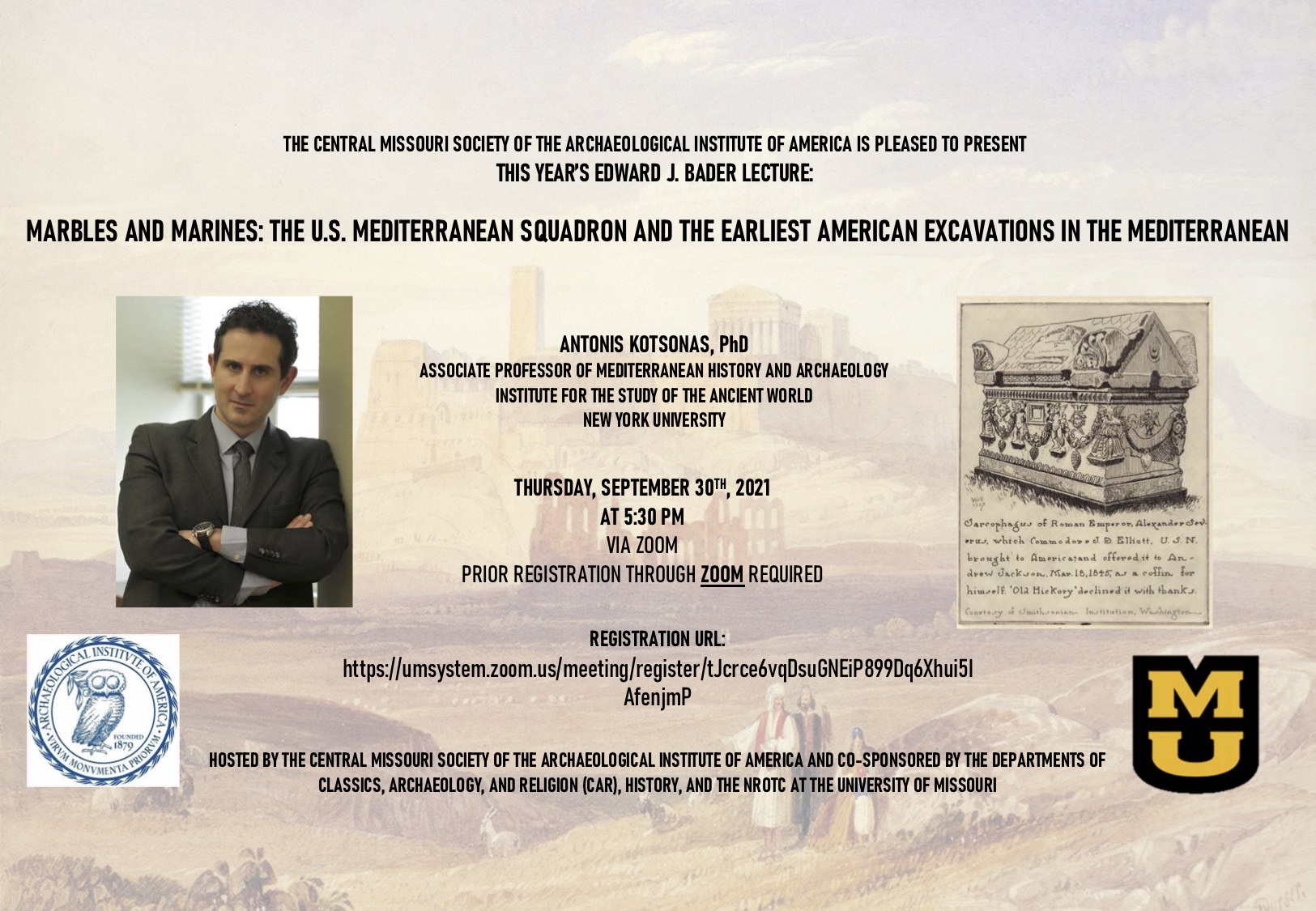
This is an online event.
Sponsored by: Archaeological Institute of America
“The first extensive experience of Greece by a large number of Americans” came precisely 200 years ago, in 1822. These people were Marines of the U.S. Mediterranean Squadron, on duty to protect American commercial interests in the region. The Marines visited the Aegean to observe the Greek War of Independence which had erupted some months earlier (1821) and returned to the area from 1825 to 1827 to suppress piracy, which was booming while the War was raging.
Along with their military duties, the Marines developed little known, but surprisingly wide-ranging antiquarian interests and activities across most of the Aegean, but especially in the areas controlled by the Greek revolutionaries, including Attica, the Peloponnese and the Cyclades (in addition to the Ottoman territories of Ionia and the Northeast Aegean). The activities of the Marines ranged from visiting ancient sites and documenting visible structures and inscriptions, to writing poetry inspired by the monuments, to purchasing antiquities, and even to conducting rudimentary excavations. The antiquities they obtained were shipped back to the US, with some coming to private hands and other to cultural institutions. My lecture sheds light in this early and largely overlooked encounter of Americans with ancient and modern Greece and appreciates it in its broader political and cultural context.
Short bibliography and/or website on lecture topic:
Dinsmoor, W.B. 1943. Early American Studies of Mediterranean Archaeology. Proceedings of the American Philosophical Society 87.1, pages 70-104.
Larrabee, Stephen A. 1957. Hellas Observed: The American Experience of Greece 1775-1865. New York: New York University Press, pages 55-92 (Chapter 3).

Edward J. Bader Lecture
RegisterNotifications